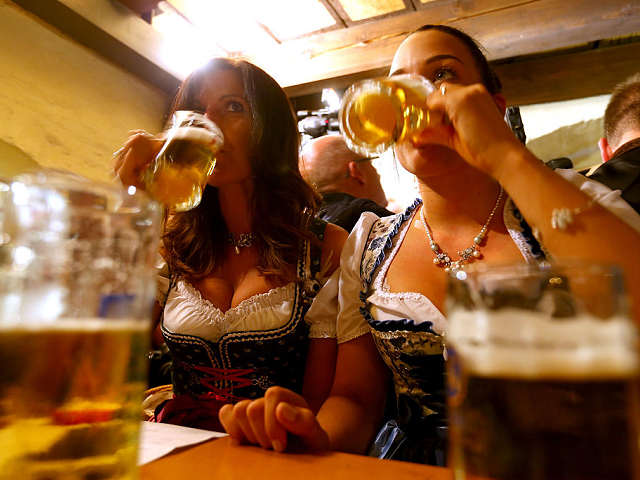New research shows Germans are showing less interest in sex as a recreational activity, while birthrates in the central European nation flatlines. It is thanks only to mass migration, now, that the German population is growing at all.
The Hamburg Institute for Future Studies has revealed a rapidly dwindling interest among Germans in sex — and indeed among most social interaction — with the shortfall being made up by a devotion to television, the internet, and exercise.
Less than a third of Germans polled enjoy sex as a regular leisure activity. Compared to the last survey in 2011, down by some ten per cent. This fall is despite Germany being among Europe’s most openly sexualised cultures, where brothels are legal and freely available, and sexual deviations are openly accepted.
Other social interactions are also suffering. Few Germans enjoy the pleasure of the company of their friends and relatives, with just 17 per cent meeting regularly others — down 33 per cent in five years.
In comparison, internet usage as a regular hobby rose by 48 percentage points to 75 per cent among respondents, and 97 per cent watched television as a leisure activity at least once a week, reports Tagesspiegel. Internet usage has eclipsed reading books for the first time in the history of the survey as a favourite hobby, and other traditional pursuits are suffering.
A majority of respondents said they weren’t interested in the opera, theatre, volunteering organisations, or societies at all.
The fall of interest in sex and falling birthrates in Germany has also influenced how Germans spend their spare time, with Deutsche Welle reporting the declining amount of time Germans spend playing with children may have something to do with the birthrate.
In Germany, the birthrate is now just 1.3 – well below the 1.9 of Britain, and 2.01 figure of France. The so-called replacement rate, or number of children each woman on average needs to have to maintain a sustainable population, is well above any of these figures at 2.1.
Despite this, Germany’s population is now growing again for the first time in years after long-term decline — because of the Europe migrant crisis. Wholesale imports of so-called refugees to Germany has boosted the population to 2009 levels.
Although the Guardian Datablog has cited Germany’s low birthrate and naturally dwindling population and the typical migrant being of working age as a reason for continued mass migration, the German experience so far has shown very poor integration into the workforce among new arrivals, placing extra strains on the proportionally shrinking group of taxpaying Germans.
As reported by Breitbart London, the vast majority of migrants arriving in the country are totally unemployable, many having no qualifications at all or even a school leavers certificate. Just 63 migrants who arrived through the migration crisis have found work with Germany’s top firms, who between them employ millions of normal Germans. The majority of those who had found jobs in those top firms were with the post office doing jobs that “do not require technical skills or a considerable amount of interaction in German”.
The situation has become so embarrassing for pro-mass migration leader Angela Merkel that she has this week demanded German firms speed up the employment of new arrivals. Calling for “viable solutions”, the Chancellor said “special provisions” would have to be created to get the uneducated and in many cases illiterate migrants into work.

COMMENTS
Please let us know if you're having issues with commenting.